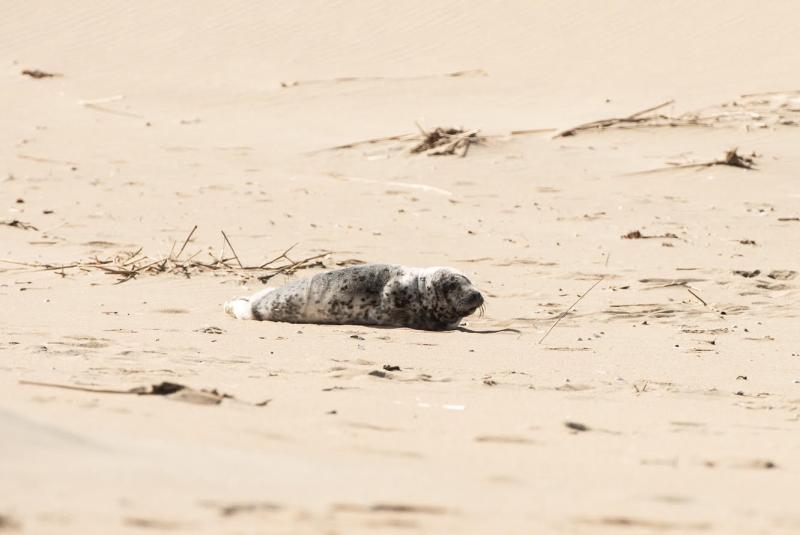A young gray seal pup recently rescued in Bethany Beach is currently in New Jersey receiving additional assistance to return to the ocean, thanks to responders from the Marine Education, Research and Rehabilitation Institute.
MERR was contacted Feb. 8 by a resident who noticed the tiny seal on the shoreline in front of Sea Colony in Bethany Beach. A team was quickly dispatched for initial observations and determined that the female seal was alert and active, but underweight and in need of nourishment.
Early Feb. 9, a rescue team from MERR was able to secure the seal for transport to Brigantine, N.J., where colleagues at the Marine Mammal Stranding Center plan to administer nutritional support and fluids. The animal was rather exhausted from her big outing and slept for the better part of her transport.
The rescue team opted to name her Juliette, in reference to the upcoming Valentine’s Day holiday. The New Jersey team will further diagnose the seal for any underlying conditions that may have contributed to her coastal visit.
“We hope that little Juliette will be fat and feisty soon, and soon return to her home in the ocean,” said MERR Executive Director Suzanne Thurman.
It’s not uncommon for seals to be found on area coastlines at this time of year for a variety of reasons: to warm up and regulate their body temperature, to molt or shed their old hair, to interact with other seals, to avoid a predator, to give birth and nurse their pups, and to rest after consuming food at sea.
Anyone who comes across a seal along the Delaware coastline should remember to keep a safe distance of at least 150 feet from the animal and call the MERR Institute response line, 302-228-5029. Seals are protected under the Marine Mammal Protection Act, a federal law that protects marine mammals from harassment and more extreme effects of human behavior. Violators are subject to fines and imprisonment.
Seals can typically be found in Delaware waters and on beaches from November to April, and even though this is normal, it is still a rare opportunity to catch sight of a seal in the wild. MERR volunteers will help members of the public learn how to be responsible wildlife observers, and to view these amazing and entertaining animals from a safe distance. For more information, go to merrinstitute.org.

















































